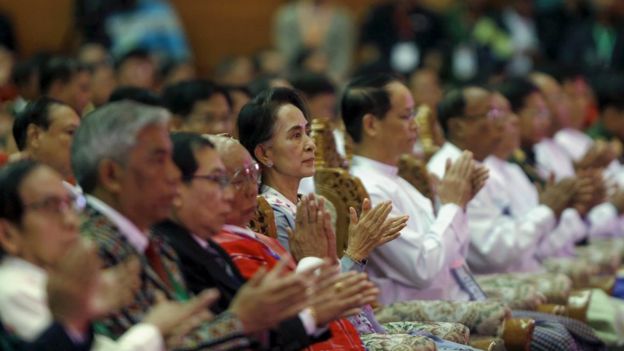Hundreds of representatives from the army, parliament and ethnic armed groups are meeting for peace talks in Myanmar.
It follows a ceasefire agreement, signed in October, between the outgoing government and eight armed groups.
Aung Sang Suu Kyi, whose party won elections in November, has spoken at the five-day conference in Nay Pyi Taw.
However, correspondents say there are serious doubts about what can be achieved at the summit.
All of Myanmar's more active ethnic rebel armies have either refused to show up or been blocked by the Burmese army, says the BBC's Jonah Fisher in Yangon. The eight who are there are mostly from the more peaceful southern part of the country and have not clashed significantly with the military for years.
Many of the others, the Burmese military has promised to crush. That could put it at odds with Aung San Suu Kyi, who says the peace process will be a top priority of the incoming government, our correspondent said.
 Reuters
Reuters
The National League for Democracy (NLD) is due to take power in March, although Ms Suu Kyi is constitutionally barred from becoming president.
The ethnic armed groups have fought for greater autonomy or outright independence for generations.
Existing divisions became open conflict shortly after independence in 1948 and the departure of the British, who had attempted to keep the country's Buddhist majority in check by granting powers to ethnic areas - powers which were later recentralised, despite constitutional promises of autonomy.
No comments:
Post a Comment